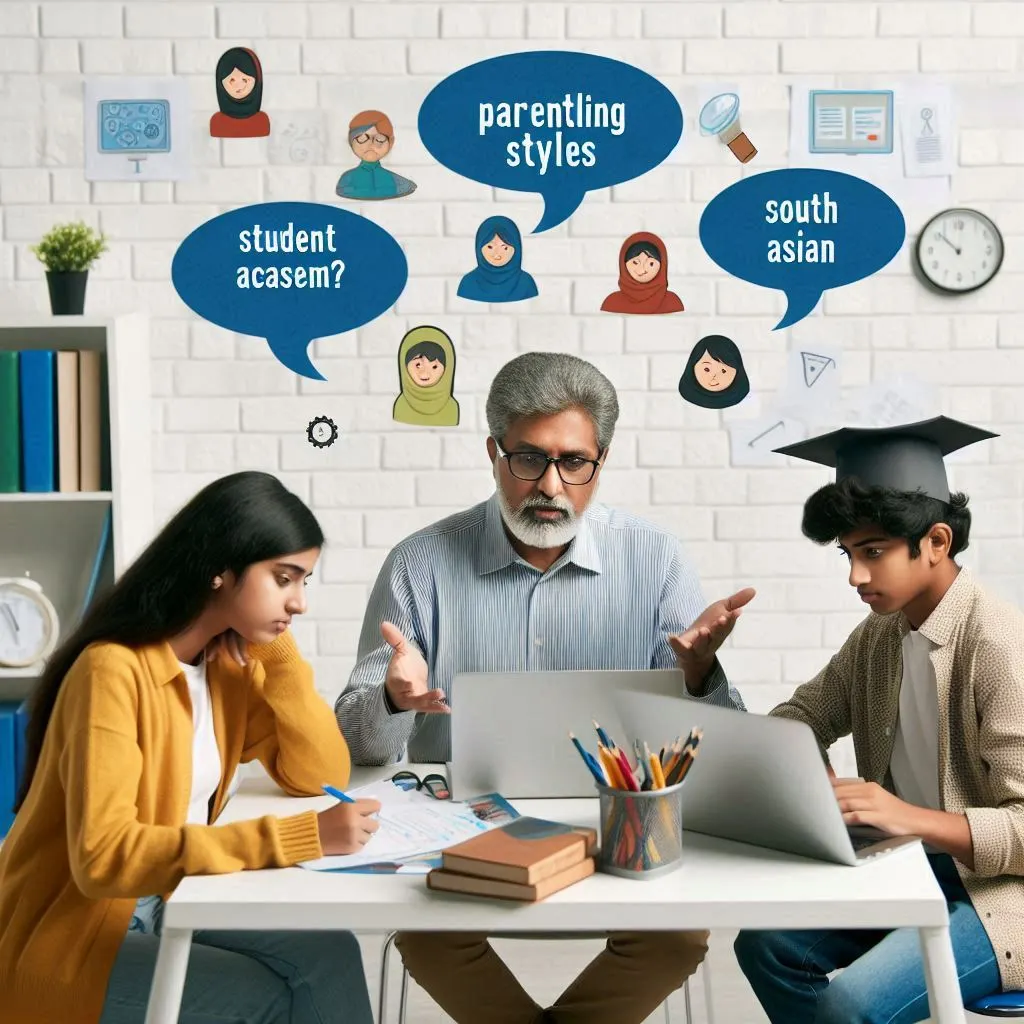What Is the Correlation Between Parenting Styles and Student Academic Success :2025
Table of Contents
Correlation between Parenting Styles and Student Academic Success?
What are the basics of parenting styles? When you think of academic success, the first things that probably come to mind are a student’s effort and ability. But every successful student there is a parental style. Parenting styles are the methods and strategies parents apply to raise their children. There is authoritative, authoritarian, permissive, and neglectful. Each has its characteristics that are projected during child development and success in school.
For example, authoritative parents have a balance of care and discipline, and authorisation, parents, just demand obedience without developing the right guidance, among other styles. It is important, as today’s parenting styles are manifested not only in the behaviour of their children at home but also motivate learning in the classroom affects children’s social position and self-esteem The authoritative advantage.
What are the benefits of support and expectation balancing? For example, an authoritative student in school can develop confidence and care with a child, start counting high expectations, keep their children safe and confident, show their parental support but give their children opportunities. supportive and self-motivated academic task confidence. Research shows that students from such families are more successful in school.

In addition, the reasons are that students are not forced to learn at home for punishment for their grades. Why? That way, they and they internalise the valued transference properties. For example, a mission realised the value of learning in her parents’ words; they had recently talked about a test taking time planning, but a test approach, reasonable rules, and celebration.
Authoritarian Parenting: The Hands-Off Approach
First, let’s take the coin and flip it banana style. For instance, take a student like Jake who has very forceful and strict parents — they demand total compliance (with zero questioning) from their son or he gets disciplined. Despite good intentions, this approach can backfire on over scheduled kids born to parents from a previous gen-ration.
Jake may be an A student, but when the reason he does so well is that his behaviour at school and home alike are fear-driven rather than a love of learning. The pressure can result in people experiencing high levels of stress, low self-esteem and on occasions even academic burnout.
Research also shows that kids with authoritarian parents succeed academically in the short run, but they are found to be less creative and have difficulty problem-solving, not to mention even more likely for lower levels of long-term motivation. While the strict environment lowers education and personal compatibility it may not give way to compliance, but does opposition in a net increase of any vital thinking or self-control necessary for sustainably higher academic standards and overall maturity.

The Most Common Child-rearing Style Known As Permissive Parenting
At the opposite pole, we have permissive parents. Imagine a girl named Lily, whose parents almost never establish rules or hold her accountable for breaking them. Parents would rather be their child’s friend,with freedom they think it will make them happier and free of inhibition. As much a Lily might like her happy home, she thrives with structure and balance. Lily might end up having issues with time management, self control and hence motivation if the expectations are not set or even there.
Research has also shown that children from permissive households generally get worse grades because they have not been taught to adjust themselves in any system, time requirements must be met. They are stellar in some of their creative tasks but simply do not have the grit to keep pecking at hard subjects or boring homework and this inconsistency often leads them to be subpar scholars.
The Path to Disconnection: Neglectful Parenting
And lastly, There is a Neglectful — Disengaged Parenting style… childishness Let’s think of another student, Alex who very rarely sees his parents and gets very little guidance or support. His parents and guardians are simply too busy or empowering his education while he fend for himself. Lack of parental involvement is one the main causes for poor academic performance by a child.
And kids like Alex who struggle are of no exception — with the resentment, helplessness and isolation that inflicts both a lack of empathy as well as pathos in his situation. In the absence of encouragement or supervision these students can fall behind academically, lose interest in learning and may eventually drop out altogether. Unsurprisingly, where the arrow goes from positive to negative is around neglectful parenting: children who receive neither support or discipline tend not do well in school.

How to find the right balance for success in College?
Finally, there is a significant but intricate relationship between parental approaches and student academic gift ed success. Although authoritative parenting always emerges as the best bet when it comes to academic success, remember that your child is a unique individual. Not every single solution may work for your own child, as each kid is different, but anyways parents should better know what to do.
Ultimately the golden nugget was balance — between support & structure and independence & self-motivation. This helps us as parents and educators to provide a system which fosters not only academic success but the child’s well-being in totality. After all, success in academics is not just about grades; it also involves growing the seed for an ongoing passion and ability to tackle this wonderful thing called LIFE.
FAQs:
- What is my Parenting style?
Step 1: Reflect on your Parenting Style Notice how you react to your child’s acting out. Authoritarian: You set a lot of rules and demand obedience If you establish rules but are willing to explain why they exist, and have open conversations about them (authoritative) Do you let up and not make rules at all (permissive)?
Are you absent a lot or neglectful? By paying attention to these patterns, you get a pretty good idea of your style. You can also consult and ask for feedback from anyone you know that is familiar with your family, IE a partner, friend or even one of the kids themselves.
- Is my parenting style modifiable?
No, unfortunately parenting styles are not so easy. Now, you can slowly start switching to the best approach available if what you are currently doing does not help your child academically or personally. Begin by establishing direct, yet flexible ground rules and start offering unconditional support while practising open communication with your child. While it can be slow-going, positive changes will have a big impact on your child and his or her development.
- Is it a difficult process when my partner and I have contrasting parenting styles?
Many parents are divided on how to address this. Your goal is to find a happy medium that works for your child. What you need to do is lay out your parenting goals and come up with a plan for how both of you can be consistent stakeholders. This is essential for the security of your child and to know what you understand. If problems continue, turn to a family counsellor for help in getting on the same page about being parents.
- What effect does it have on the self-esteem of a child?
Parenting styles have a great impact on child self-esteem. There are four sorts of parenting — authoritarian (establishing harsh rules), permissive, uninvolved and authoritative that strikes a right balance among insistent expectations as well as constructionist are very likely to cultivate higher self-esteem.
Whereas, in the presence of a critical and not emotion authentic parent can decrease self-esteem. Self-esteem fluctuates when the parent is permissive, children have a hard time with limits. Children who are neglected and made to feel as if they DO NOT MATTER will have the lowest self-esteem.
- Is there a cultural distinction on parenting styles and consequences?
Absolutely — cultural factors play a major role in defining what types of parenting styles are associated with different outcomes. Similarly, certain cultures may stress adherence to traditional norms like respect of authority and community (authoritarian) as others highlight individuality from early age both independence at older ages authoritative or permissive.
Different cultural norms and values can affect the way a parenting style works for any given child; therefore it is necessary to take culture into account when assessing the importance of parenting on scholastic achievement.
- What Impact Does Parental Involvement Have On Academic Success?
This seems to indicate that no matter what kind of parenting style you have, having your parents behind you is a major part of how academically successful we are. Research has shown that when parents are involved—whether by attending parent-teacher conferences, helping with homework and teaching activities in the home or taking a direct interest in their children’s education—they perform better academically.
This engagement conveys that education is valued and can inspire children to work harder at school. Even in permissive and authoritarian households, active involvement is able to reduce some of the negative effects associated with these styles.
- But what if I am really trying, and my child is just not improving at school?
If my child is academic behind despite of the support they receive at home, it may be worth doing some research. These factors might centre on learning disabilities, emotional or psychological concerns within the child and domestic social problems with-in the school community. As always, while being a caring parent is important, it’s crucial to communicate with your child too, and if you feel they need professional intervention DO IT.
If you collaborate with teachers, counsellors and education professionals in her school closely, they can give some strategies and support for your child to succeed.







